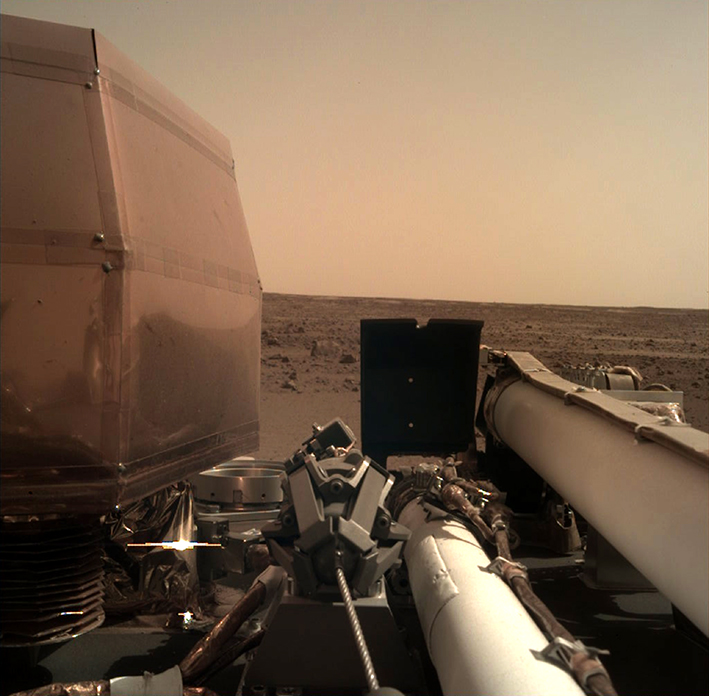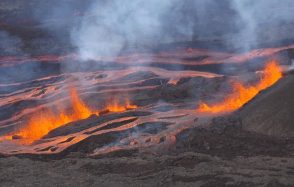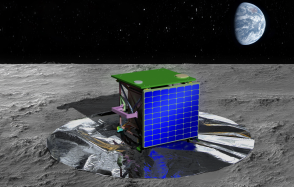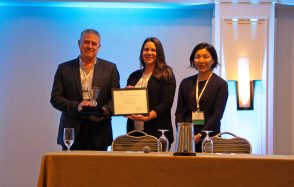Landing of InSight probe
After years of research, months of fine-tuning, thousands of working hours, a journey of 485 million kilometers, and "7 minutes of terror", the InSight probe, the fruit of international collaboration and carrying the SEIS seismometer designed at IPGP, landed on Mars on Monday, November 26th, 2018.
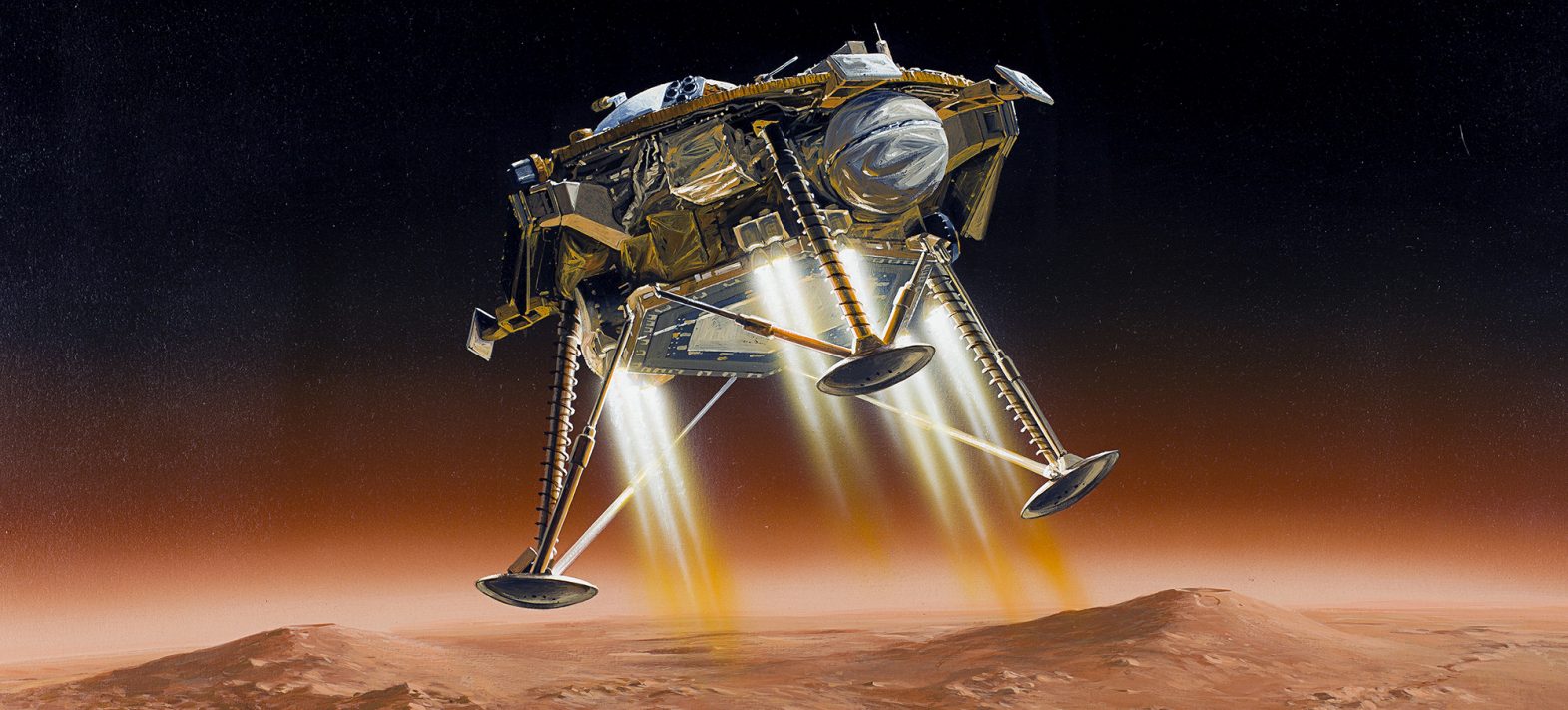
Artist's view of the InSight landing on Mars. IPGP - Manchu - Agence 21
Publication date: 16/11/2018
Observatories, Press
Related observatories : InSight Observatory
Related themes : Earth and Planetary Interiors





